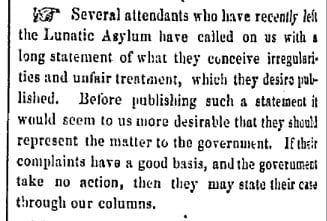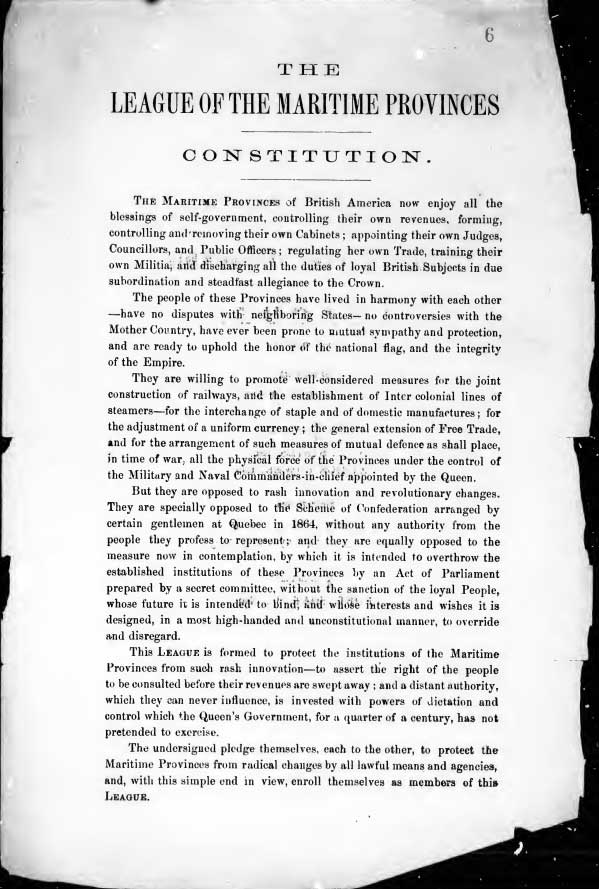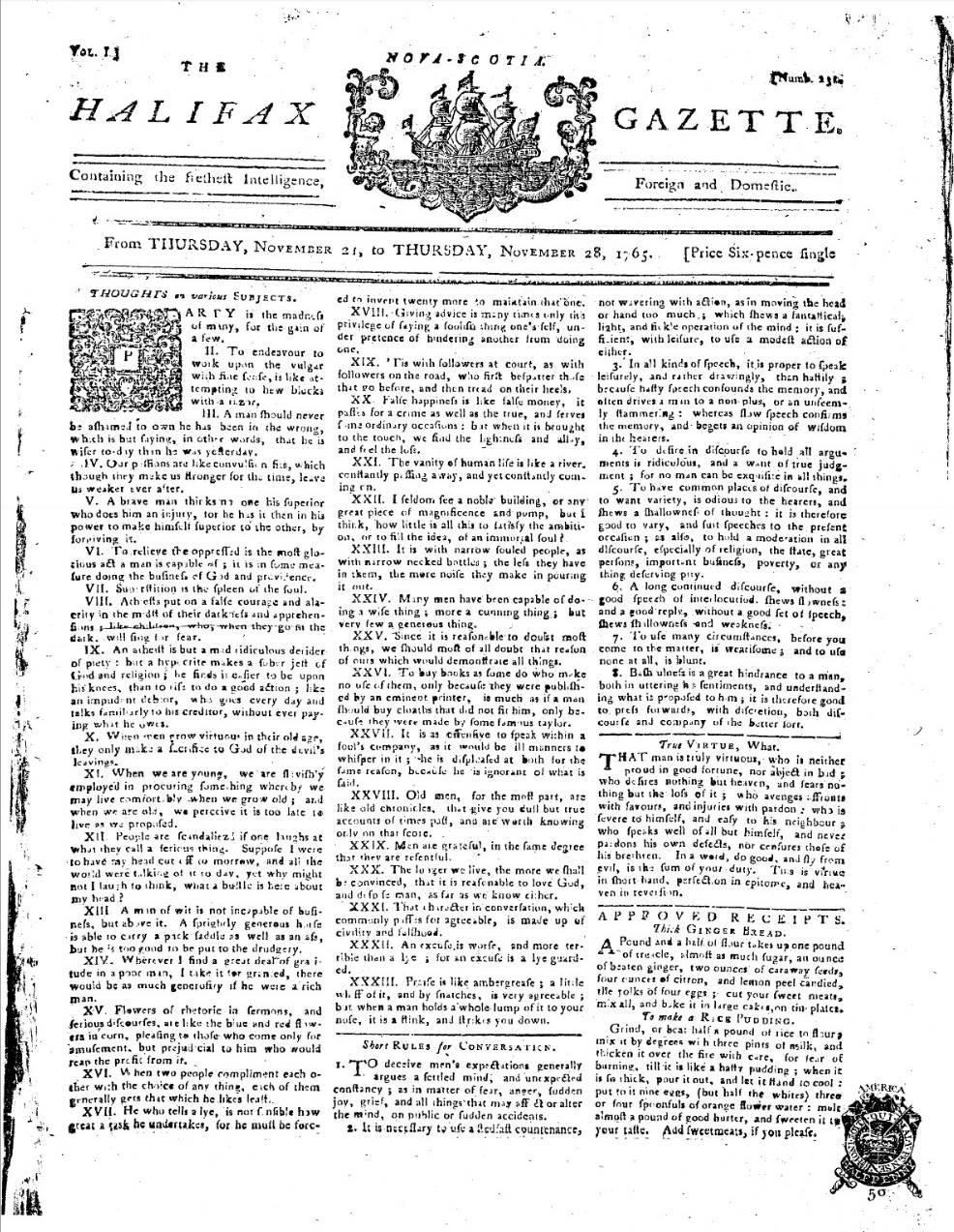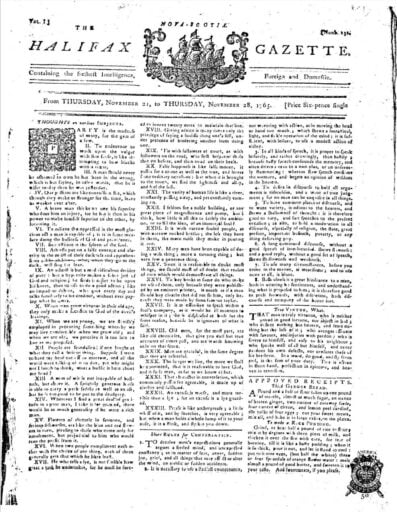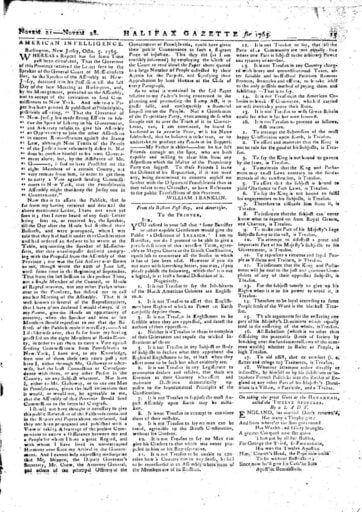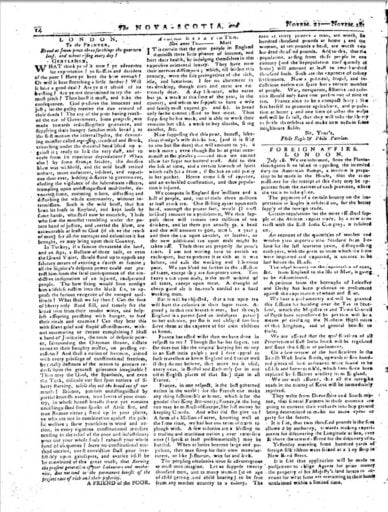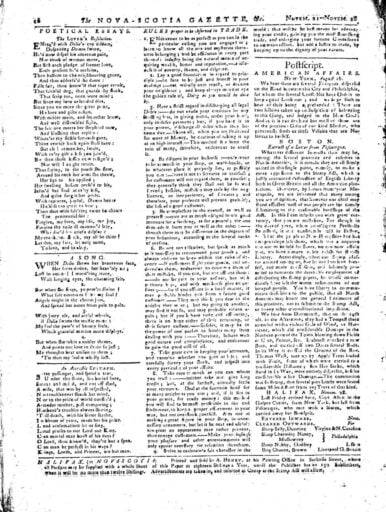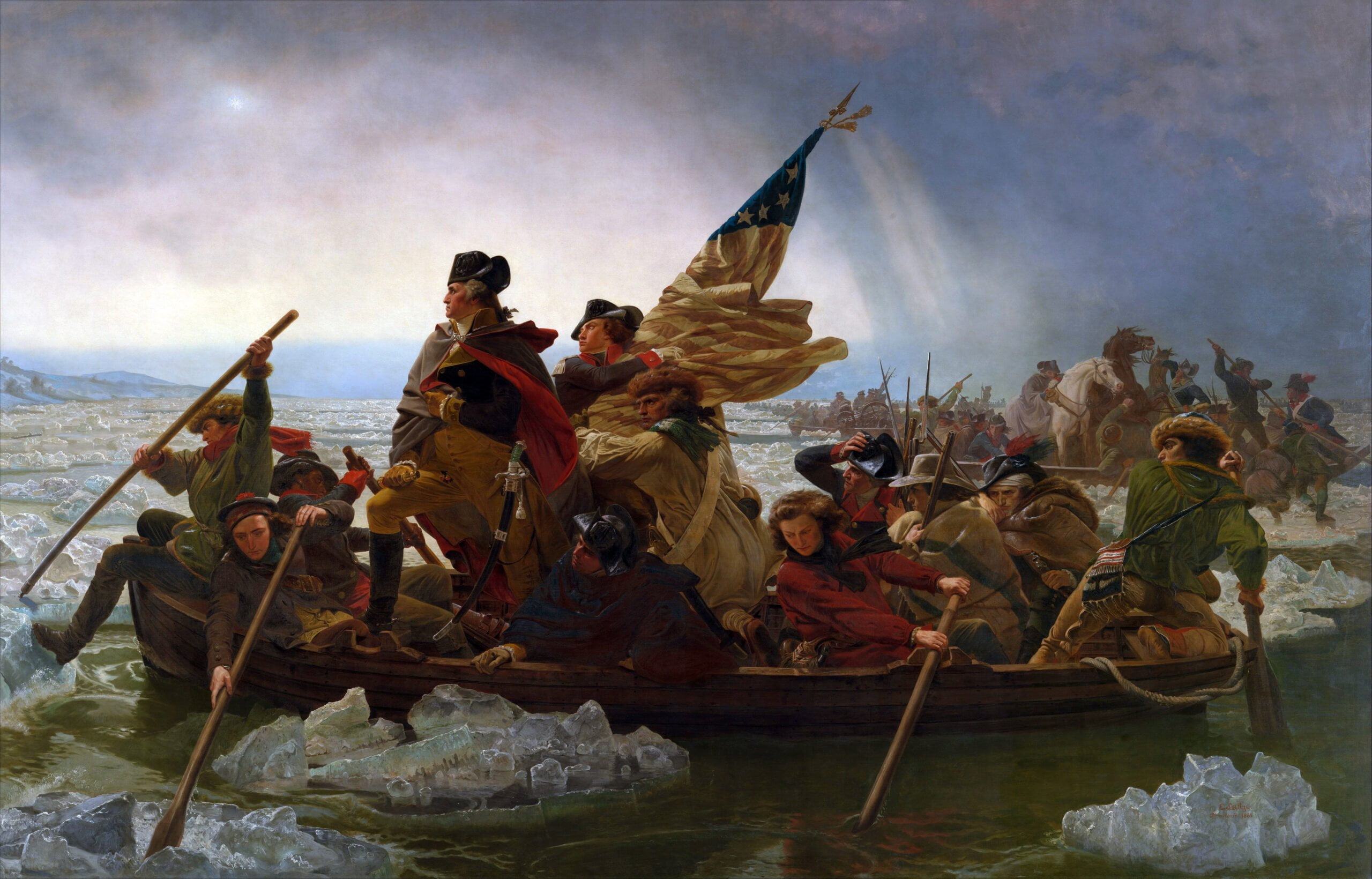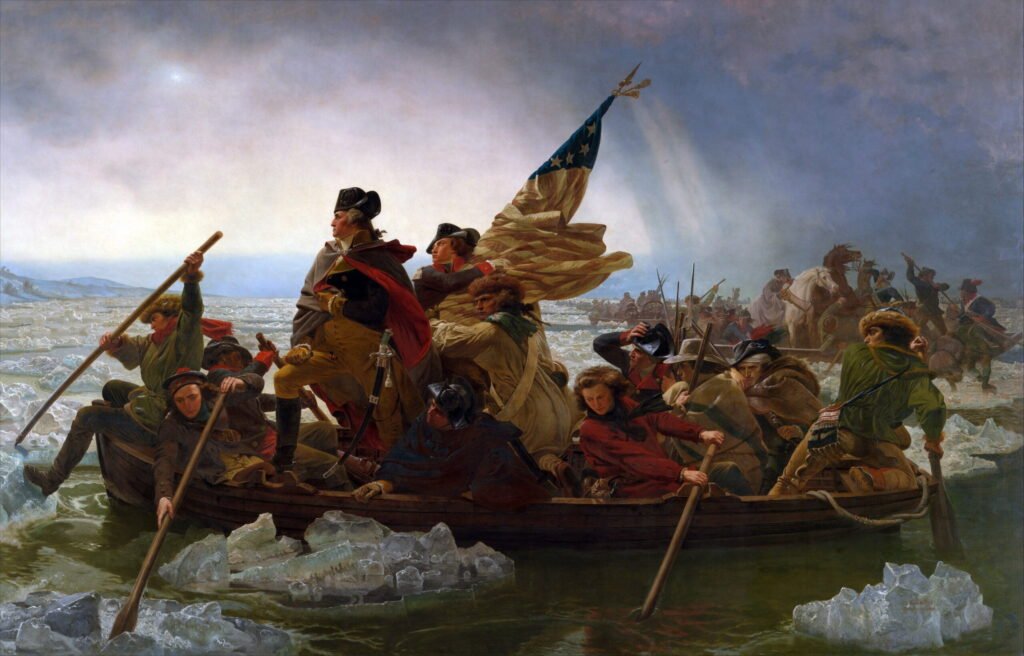Advertisement.* (copy.) Whitehall, 7th March, 1749.
A proposal having been presented unto His Majesty for the establishing a civil government in the Province of Nova Scotia, in North America, as also for the better peopling and settling the said Province, and extending and improving the Fishery thereof, by granting lands within the same, and giving other encouragement to such of the officers and private men lately dismissed His Majesty’s land and sea service, as shall be willing to settle in said Province. And His Majesty having signed his royal approbation of the report of the said proposals, the Right Honourable the Lords Commissioners for Trade and Plantations, do by His Majesty’s command, give notice that proper encouragement will be given to such of the officers and private men lately dismissed His Majesty’s Land and Sea service, as are willing to accept of grants of land, and to settle with or without families in Nova Scotia. That 50 acres of land will be granted in fee simple to every private soldier or seaman, free from the payment of any quit rents or taxes for the term of ten years, at the expiration whereof no person to pay more than one shilling per annum, for every 50 acres so granted.
That a grant of 10 acres, over and above the 50, will be made to each private soldier or seaman having a family, for every person including women and children of which his family shall consist, and from the grants made to them on the like conditions as their families shall increase, or in proportion to their abilities to cultivate the same.
That eighty acres on like conditions will be granted to every officer under the rank of Ensign in the land service, and that of Lieutenant in the sea service, and to such as have families, fifteen acres over and above the said eighty acres, for every person of which their family shall consist.
That two hundred acres on like conditions will be granted to every Ensign, three hundred to every Lieutenant, four hundred to every Captain, and six hundred to every officer above the rank of Captain. And to such of the above mentioned officers as have families, a further grant of thirty acres will be made over and above their respective quotas for every person of which their family shall consist.
That the lands will be parcelled out to the settlers as soon as possible after their arrival, and a civil government established, whereby they will enjoy all the liberties, privileges and immunities enjoyed by His Majesty’s subjects in any other of the Colonies and Plantations in America, under His Majesty’s Government, and proper measures will also be taken for their security and protection.
That all such as are willing to accept of the above proposals shall, with their families, be subsisted during the passage, also for the space of twelve months after their arrival.
That they shall be furnished with arms and ammunition as far as will be judged necessary for their defence, with a proper quantity of materials and utensils for husbandry, clearing and cultivating the lands, erecting habitations, carrying on the fishery, and such other purposes as shall be deemed necessary for their support.
That all such persons as are desirous of engaging in the above settlement, do transmit by letter, or personally give in their names, signifying in what regiment or company, or on board what ship they last served, and if they have families they intend to carry with them, distinguishing the age and quality of such person to any of the following officers appointed to receive and enter the same in the books opened for that purpose, viz : — John Pownell, Esq., Solicitor and Clerk of the Repts. of the Lords Comrs. of Trade and Plantations, at their office at Whitehall; John Russell, Esq., Comr. of His Majesty’s Navy at Portsmouth; Philip Vanburgh, Esq., Comr. of His Majesty’s Navy at Plymouth.
And the proper notice will be given of the said Books being closed, as soon as the intended number shall be completed, or at least on the 7th day of April.
It is proposed that the Transports shall be ready to receive such persons on board on the 10th April, and be ready to sail on the 20th, and that timely notice will be given of the place or places to which such persons are to repair in order to embark.
That for the benefit of the settlement, the same conditions which are proposed to private soldiers and seamen shall likewise be granted to Carpenters, Shipwrights, Smiths, Masons, Joiners, Brickmakers, bricklayers and all other artificers necessary in building or husbandry, not being private soldiers or seamen.
That the same conditions as are proposed to those who have served in the capacity of Ensign shall extend to all Surgeons, whether they have been in His Majesty’s service or not, upon their producing proper certificates of their being duly qualified.
By order of the Right Hon. the Lords Comrs. of Trade and Plantations.
Thomas Hill, Secretary.
*This advertisement was published in the London Gazette, March, 1749
His Majesty’s Commission to His Excellency Governor Cornwallis
George the Second, by the Grace of God of Great Britain, France and Ireland, King, Defender of the Faith, &c. To our Trusty and well beloved, the Honorable Edward Cornwallis, Esquire, Greeting. Whereas we did by our Letters Patent under our Great Seal of Great Britain bearing date at Westminster the Eleventh day of September in the second year of Our Reign constitute and appoint Richard Philipp’s, Esquire, Our Captain General and Governor in Chief, in and over Our Province of Nova Scotia or Acadie in America, with all the rights, members and appurtenances whatsoever thereunto belonging, for and during our will and pleasure ; as by the said recited Letters patent relation being thereunto had may more fully and at large appear.
Now Know you that we have revoked and Determined and by these presents do Revoke and Determine the said recited Letters Patent, and every clause, article and thing therein Contained; and Further Know you that we reposing special trust and confidence in the prudence, courage and Loyalty of you the said Edward Cornwallis of our especial Grace certain knowledge and meer motion have thought fit to constitute and appoint you the said Edward Cornwallis to be our Captain General & Governor in Chief in and over our province of Nova Scotia or Acadie in America with all the rights, members and appurtenances whatsoever there- unto belonging, and we do hereby require and command you to do and execute all things in due manner that shall belong unto your said Command and the Trust We have reposed in you according to the several powers and authorities granted or appointed you by tins present Commission and the instructions herewith given you or by such further powers, Instructions and authorities as shall at any time hereafter, be granted or appointed you under our signet & sign manuel or by our order in our privy Council & according to such Seasonable Laws and Statutes as hereafter shall be made or agreed upon by you with the advice and consent of Our Council and the Assembly of our said province under Your Government hereafter to be appointed in such manner & form as is here- after expressed.
And for the better administration of Justice and the management of the Publick affairs of our said province, We hereby give and grant unto you the said Edward Cornwallis full power and authority to Chuse nominate & appoint such fitting and discreet persons as you shall either find there or carry along with you not exceeding the number of Twelve, to be of our Council in our said Province. As also to nominate and appoint by Warrant under your hand and seal all such other officers and ministers as you shall Judge proper and necessary for our service and the good of the people whom we shall settle in our said Province untill our further will and pleasure shall be known.
And our will and pleasure is that you the said Edward Cornwallis (after the publication of these our Letters Patent) do take the Oaths appointed to be taken by an Act passed in the first year of his late Majesty’s our Royal father’s Reign, Entitled an Act for the further security of His Majesty’s Person and Government and the succession of the Crown in the Heirs of the late Princess Sophia being Protestants and for extinguishing the hopes of the pretended Prince of Wales and his open and secret abettors. As also that you make and subscribe the Declaration mentioned in an Act of Parliament made in the Twenty fifth year of the Reign of King Charles the Second entitled an Act for preventing dangers which may happen from Popish Recusants. And likewise that you take the usual Oath for the due execution of the office and trust of Our Captain General & Governor in Chief of our said Province for the due and impartial Administration of Justice } and further that you take the oath required to be taken by Governors of Plantations to do their utmost that the several Laws relating to Trade and the Plantations be observed. All which said Oaths and Declaration Our Council in our said province or any five of the members thereof have hereby full power and authority and are required to tender and administer unto you and in your absence to our Lieutenant Governor, if there be any upon the place, all which being duly performed you shall administer unto each of the members of Our said Council as also to our Lieutenant Governor, if there be any upon the place, the said Oaths mentioned in the said Act Entitled an Act for the further security of His Majesty’s Person & Government and the succession of the Crown in the Heirs of the late Princess Sophia being Protestants and for extinguishing the hopes of the pretended Prince of Wales and his open and secret abettors ; as also to cause them to make and subscribe the aforementioned declaration and to administer to them the Oath for the due execution of their places and Trusts.
And We do hereby give & grant unto you full power and Authority to suspend any of the members of our said Council to be appointed by you as aforesaid from sitting voting and assisting therein if you shall find just cause for so doing.
And if it shall at any time happen that by the Death departure out of our said province, suspension of any of our said Councilors or otherwise there shall be a vacancy in our said Council (any five whereof we do hereby appoint to be a Quorum) our will and pleasure is that you signify the same unto us by the first opportunity that we may under our signet & sign manuel constitute and appoint others in their stead.
But that our affairs at that distance may not suffer for want of a due number of Councilors, if ever it shall happen that there shall be less than nine of them residing in our said Province We hereby give and grant unto you the said Edward Cornwallis full power and authority to Chuse as many persons out of the principal freeholders Inhabitants thereof as will make up the full number of our said Council to be nine and no more; which person so chosen and appointed by you shall be to all intents and purposes Councilors in our said Province until either, they shall be confirmed by us or that by the Nomination of others by us under our sign manuel or signet our said Council shall have nine or more persons in it.
And We do hereby give and grant unto you full power & authority with the advice and consent of our said Council from time to time as need shall require to summon and call General Assemblys of the Freeholders and Planters within your Government according to the usage of the rest of our Colonies & plantations in America. And our will and pleasure is that the persons thereupon duly elected by the major part of the Freeholders of the Respective Counties and places & so returned shall before their setting take the Oaths mentioned in the said Act entitled an Act for the further security of his Majesty’s Person and government and the succession of the Crown in the Heirs of the late Princess Sophia being Protestants, and for extinguishing the hopes of the pretended Prince of Wales and his open and secret abettors, as also make and subscribe the aforementioned Declaration (which Oaths & Declaration you shall commissionate fit persons under our seal of Nova Scotia, to Tender and administer unto them,) and until the same shall be so taken and subscribed no person shall be capable of sitting tho’ elected, and we do hereby declare that the persons so elected and qualified shall be called and deemed the General Assembly of that our Province of Nova Scotia.
And that you the said Edward Cornwallis with the advice and consent of our said Council and Assembly or the Major part of them respectively shall have full power and authority to make, constitute and ordain Laws, Statutes & Ordinances for the Publick peace, welfare & good government of our said province and of the people and inhabitants thereof and such others as shall resort thereto & for the benefit of us our heirs & Successors, which said Laws Statutes and Ordinances are not to be repugnant but as near as may be agreeable to the Laws and Statutes of this our Kingdom of Great Britain.
Provyded that all such Laws, Statutes & Ordinances of what nature or duration so ever be within three months or sooner after the making thereof transmitted to us under Our Seal of Nova Scotia for our approbation or Disallowance thereof as also Duplicates by the next conveyance.
And in case any or all of the said Laws, Statutes & Ordinances not before confirmed by us shall at any time be disallowed and not approved & so signyfied by us our Heirs or Successors under our or their sign manuel & signet or by order of our or their privy Council unto you the said Edward Cornwallis or to the Commander in Chief of our said Province for the time being then such and so many of the said Laws Statutes, and Ordinances as shall be so disallowed <fc not approved shall from thenceforth cease, determine & become utterly void & of none elect any thing to the contrary thereof notwithstanding.
And to the end that nothing may be passed or done by our said Council or Assembly to the prejudice of us our Heirs & Successors We Will & ordain that you the said Edward Cornwallis shall have and enjoy a Negative Voice in the making and passing of all Laws, Statutes & Ordinances as aforesaid.
And you shall & may likewise from time to time as you shall Judge it necessary, adjourn, Prorogue & Dissolve all General Assemblies as aforesaid.
And our further will and pleasure is that you shall and may keep & use the Publick Seal of our Province of Nova Scotia for Sealing all things whatsoever that Pass the Great Seal of Our said Province under your Government.
And We do further give and grant unto you the said Edward Cornwallis full power and authority from time to time & at any time hereafter by yourself or by any other to be authorised by you in that behalf to administer and give the Oaths mentioned in the aforesaid Act to all and every such person or persons as you shall think fit who shall at any time or times pass into our said Province or shall be residing or abiding there.
And We do by these presents give and grant unto you the said Edward Cornwallis full power and authority with advice and consent of our said Council to erect constitute and establish such & so many Courts of Judicature & publick Justice within our said Province and Dominion as you and they shall think fit and necessary for the hearing & determining all causes as well Criminal as Civil according to Law and Equity and for awarding of Execution thereupon with all reasonable and necessary powers, Authorities fees & Privileges belonging thereunto as also to appoint & Commissionate fit per- sons in the several parts of your Government to administer the oaths mentioned in the aforesaid Act Entitled an Act for the further security of His Majesty’s Person & Government & the Succession of the Crown in the Heirs of the late Princess Sophia being Protestants and for Extinguishing the hopes of the pretended Prince of Wales and his open and secret abettors; As also to tender & Administer the aforesaid Declaration unto such persons belonging to the said Courts as shall be obliged to take the same.
And We do hereby authorise and Impower you to constitute & appoint Judges & in cases requisite Commissioners of Oyer & Terminer, Justices of the Peace and other necessary officers & ministers in our said Province for the better ad- ministration of Justice and putting the Laws in execution and : to administer or cause to be administered unto them such oath or oaths as are usually given for the due execution and performance of offices and places and for the clearing of truth in Judicial Causes.
And We do hereby give and Grant unto you full power & Authority where you shall see cause or shall Judge any offender or offenders in Criminal matters or for any fines or forfeitures due unto us, fit objects of our mercy to pardon all such offenders and to remitt all such Offences Fines & Forfeitures, Treason & willfull murder only excepted; in which cases you shall likewise have power upon extraordinary occasions to Grant Reprieves to the offenders untill & to the intent our Royal Pleasure may be known therein.
We do by these presents Authorise and empower you to collate any Person or Persons to any Churches, Chapels or other Ecclesiastical Benefices within our said Province as often as any of them shall happen to be void.
And We do hereby give & grant unto you the said Edward Cornwallis by yourself or by your Captains & Commanders by you to be authorized full power and authority to Levy, arm, muster, command & employ all persons whatso- ever residing within our said Province and as occasion shall serve to march from one place to another or to embark them for the resisting & withstanding of all Enemies, Pirates & Rebels both at Land & Sea, and to Transport such Forces to any of our plantations in America if necessity shall require for the Defence of the same against the Invasion or attempts of any of our Enemies, and such Enemies, Pirates & Rebels if there shall be occasion to pursue and prosecute in or out of the Limits of our said Province & plantations or any of them & (if it shall so please God) to vanquish, apprehend & take them & being taken, according to Law to put to death or keep & preserve them alive at your discretion & to execute Martial Law in time of Invasion or other Times when by Law it may be executed & to do & execute all & every other thing or things which to our Captain Generals & Governor in Chief Doeth or ought of right to belong.
And we do hereby give & grant unto you full power and authority by & with the advice and consent of our said Council of Nova Scotia, to Erect, Raise & Build in our said Province such & so many Forts & Platforms, Castles, Citys, Boroughs, Towns & Fortifications as you by the advice aforesaid shall Judge necessary, and the same or any of them to fortify and furnish with ordinance, ammunition & all sorts of arms fit and necessary for the security and defence of Our said Province and by the advice aforesaid the same again or any of them to demolish or dismantle as may be most convenient.
And for as much as divers mutinies & disorders may happen by persons shipped and employed at sea during the time of War and to the end that such as shall be shipped & employed at sea during the time of War, may be better governed & ordered, We hereby give and grant unto you the said Edward Cornwallis full power and authority to constitute & appoint Captains, Lieutenants, Masters of Ships & other Commanders & Officers, and to grant to such Captains, Lieutenants, Masters of Ships & other Commanders & Officers Commissions in time of War to execute the Law martial according to the directions of such Laws as are now in force or shall hereafter be passed in Great Britain for that purpose and to use such proceedings, authorities, punishments and executions upon any offender or offenders who shall be mutinous, seditious, disorderly or any way unruly either at sea or during the time of their abode or residence in any of the Ports, Harbours or Bays of our said Province as the cause shall be found to require according to the martial Law and the said directions during the time of War as aforesaid.
Provyded that nothing herein contained shall be construed to the enabling you or any by your authority to hold Plea or have any Jurisdiction of any offence, cause, matter or thing committed or done upon the high sea or within any of the Havens, Rivers or Creeks of our said Province under your Government by any Captain, Commander, Lieutenant, master, officer, seaman, soldier or person whatsoever, who shall be in our actual service & pay in or on board any of our Ships of War or other Vessels, acting by immediate Commission or Warrant from our Commissioners for executing the office of our High Admiral of Great Britain for the time being, under the Seal of Our Admiralty, but that such Captain, Commander, Lieutenant, master, officers, seaman, soldier, or other person so offending shall be left to be proceeded against & tryed as their offences shall require either by Commission under our great Seal of Great Britain as the Statute of the 28th of Henry the eighth directs or by Commission from our said Commissioners for executing the office of our High Admiral or from our High Admiral of Great Britain for the time being, according to the aforementioned Act for the establishing Articles & orders for the Regulating and better Government of His Majesty’s Navies, Ships of War & Forces by sea and not otherwise.
Provyded nevertheless that all disorders & misdemeanors, committed on shore by any Captain, Commander, Lieutenant, master, officer, seaman, soldier or other person whatsoever belonging to any of our ships of War or other Vessels acting by Immediate Commission or Warrant from our said Commissioners for executing the office of High Admiral or from our High Admiral of Great Britain for the time being under the Seal of Our Admiralty, may be tried & punished according to the Laws of the Place where any such disorders, offences and misdemeanors shall be committed on shore, notwithstanding such offender be in our actual service, & borne in our pay, on board any such our ships of war or other vessels acting by immediate Commission or warrant from our said Commissioners for executing the office of High Admiral or our High Admiral of Great Britain for the time being as aforesaid so as he shall not receive any protection for the avoiding of Justice for such offences committed on shore from any pretence of his being employed in our service at Sea.
And our further will and pleasure is that all publick money raised or which shall be raised by any Act hereafter to be made within our said province be issued out by Warrant from you by & with the advice and consent of the Council & dis- posed of by you for the support of the Government and not otherwise.
And we do likewise give & grant unto you full power and authority by & with the advice and consent of our said Council to. settle and agree with the Inhabitants of our Province for such Lands, Tenements, & hereditaments as now are or hereafter shall be in our power to dispose of and them to grant to any Person or Persons upon such terms and under such moderate Quit Rents services and acknowledgements to be thereupon reserved unto us as you by & with the advice aforesaid shall think fit. Which said grants are to pass & be sealed by our seal of Nova Scotia and being entered upon Record by such officer or officers as shall be appointed thereunto, shall be good & effectual in Law against us our heirs <fc successors. And We do hereby give you the said Edward Cornwallis full power to order and appoint Fairs, Marts & Markets as also such & so many Ports, Harbours, Bays, Havens and other places for convenience & security of shipping & for the better Loading & unloading of Goods & merchandizes as by you with the advice & consent of the said Council shall be thought fit & necessary.
And We do hereby require & Command all officers & ministers Civil & Military and all other Inhabitants of our said Province, to be obedient, aiding and assisting unto you the said Edward Cornwallis in the Execution of this our Commission and of the powers & authorities herein contained, and in case of your death or abscence out of Our said province to be obedient, aiding & assisting unto such person as shall be appointed by us to be our Lieutenant Governor or Commander in Chief of our said Province ; To whom we do therefore by these presents give & grant all & Singular the powers & authority’s herein granted, to be by him executed & enjoyed during our pleasure or untill your arrival within our said province.
And if upon your Death or absence out of our said province there be no person upon the Place commissionated or appointed by us to be our Lieutenant Governor or Commander in Chief of the said Province, Our Will & Pleasure is, that the Eldest Councilor, who shall be at the Time of your death or absence residing within our said Province shall take upon him the administration of the Government and execute our said Commission & Instructions and the several powers and authorities therein contained in the same manner & to all intent and purposes as either our Governor or Commander in Chief should or ought to do in case of your absence until your return or in all cases untill our further pleasure be known herein.
And we do hereby declare ordain & appoint that you the said Edward Cornwallis shall & may hold, execute & enjoy the office & place of our Captain General & Governor in Chief in & over our said Province of Nova Scotia, with all its rights, members & appurtenances whatsoever together with all & singular the Powers & authorities hereby granted unto you for & during our will & pleasure. In Witness whereof we have caused these our Letters to be made patent. Witness ourself at Westminster the Sixth day of May in the Twenty-second year of Our Reign. By Writ of Privy Seal.
(Signed) [L. S.] YORKE & YORKE.
At a Council holden at the Governour’s House at Halifax on Thursday July 11th, 1751.
Present — His Excellency the Governour. Col Horsman, Col. Gorham, B. Green, J. Salusbury, W. Steele.
His Excelly. informed the Council of the arrival yesterday of a number of palatine Settlers, and desired their opinion of the best method of disposing of them, The Council were of opinion That it would be most convenient to land them for the present at Dartmouth, and employ them in picketing in the back of the said Town.
ED. CORNWALLIS.
At a Council holden at the Govrs. House at Halifax Friday June 12th, 1752.*
Present — His Excellency the Govr. Benj. Green, Wm. Steele, John Collier, Geo. Potheringham
*At a previous meeting of the Council held on the 3d of February, a public ferry was established between Halifax and Dartmouth, and John Connor of the latter place appointed ferryman, with the exclusive privilege for 3 years to keep boats constantly passing and repassing, between Sunrise and Sunset, every day in the week, except on Sunday, when the boats should pass only twice — the ferriage to be 3d., and 6d. after hours, for each Passenger, and a reasonable price to he paid for goods, other than baggage, &c., carried in the band, which passed free.
At a Council held at the Governor’s House at Halifax on Thursday 22d March 1753.
Present — His Excellency the Governor. The Ilonble. Chas. Lawrence, Benj. Green, J no. Salusbury, Willrn. Steele, J no. Collier, Willrn. Cotterell,
His Excellency having acquainted the Council that he was Instructed by His Majesty that a Militia should be raised and Established for the Service of this Province.
The Council did advise and Consent that the following Proclamation should be immediately Issued. Proclamation for the forming of a Militia By His Excellency Peregrine Thomas Hopson Esqr. Captain General and Governor in Chief and Vice Admiral of His Majesty’s Province of Nova Scotia or Accadie and Colonel of One of His Majesty’s Regiments of Foot.
Whereas, I am directed by His Majesty’s Royal Instructions to cause a Militia to be Established, as well for the Defence of the Lives and Properties of His Majesty’s Subjects as the Honour and Security of this his Province. I have thought fit by and with the Advice and Consent of his Majesty’s Council, to issue this Proclamation hereby strictly requiring and enjoining All Planters, Inhabitants and their Servants between the Ages of Sixteen and Sixty residing in and belonging to this Town, Suburbs or the Peninsula of Halifax, the Town and Suburbs of Dartmouth and the Parts adjacent Excepting the Foreign Settlers, as it is intended that they shall be Formed at their Out Settlement.
That the said Planters and Inhabitants do forthwith provide themselves and Servants with proper and sufficient Fire Arms Consisting of a Musket, Gun or Fuzil not less than three foot long in the Barrell, two spare Flints, and Twelve Charges of Powder and Ball, suitable to their respective Fire Arms, which said Arms and Ammunition the said Planters, Inhabitants and their Servants are to have and appear with at such Rendezvous as shall be by Proclamation Appointed at any time on or after, the 22d day of May next in the year of Our Lord 1753 At which time the said Planters and Inhabitants to be accountable for themselves and Servants. And in Default of such.
Appearance and Provision aforesaid, they will be liable to the Penalty of Forty Shillings to be levied on the Goods and Chattels of such Offender or Offenders by Warrant of Distress and Sale under the Hand and Seal of any one or more of His Majesty’s Justices of the Peace for the Town and County of” Halifax, and for want of sufficient Distress such Offender or Offenders to suffer One Months Imprisonment and hard Labour. Such Warrant to be Granted upon Information of such Officer or Officers as shall be appointed to muster the Persons required to appear as aforesaid. Done in the Council Chamber at Halifax this 22d day of March, in the year of Our Lord 1753, and in the 26th year of His Majesty’s Reign.
(Signed) P. T. HOPSON. By His Excellency’s Command by and with the Advice and Consent of His Majesty’s Council.
(Signed) Wm. Cotterell, Secy. God Save the King.
Resolved that an Act be forthwith prepared for the Regulation of the said Militia.
P. T. HOPSON. Jno. Duport, Sec. Cone.
Governor Hopson to Lords of Trade. Halifax 23d July 1753
Your Ldships may perhaps be somewhat surprised that I should have anything to apprehend from so inconsiderable and contemptible a body when I have the command of so many troops; but exclusive of the difficulty that attends marching after Indians in a country like this, I assure your Ldships that the troops are so divided in keeping the different posts of Chignecto, Annapolis Royal, Mines, Pisiquid, Lunenburg, Dartmouth, George’s Island, Fort Sackville and Halifax that I have not at present a detachment to spare from hence even upon the most urgent occasion. In fact what we call an Indian War here is no other than a pretense for the French to commit Hostilities upon his Majesty’s subjects.
The Lords Commrs for Trade & Plantations. Remarks relative to the Return of the Forces in Nova Scotia, 30th March, 1755.
To give a more distinct Idea of the situation of his Majestys Troops in this Province it is necessary to mention the several posts they at present occupy and the necessity there is that these posts be maintained.
- 1, Halifax in Chebucto Harbour now the chief town in the Province being so well known needs no particular description.
- 2, George’s Island is situated within the Harbour of Chebncto and has several Cannon mounted for protecting the Harbour but the Batterys are not quite finished.
- 3, New Battery has lately been begun likewise not finish- ed. It stands on a rising ground about two miles east across the Harbour from Halifax this is to prevent shipping entering the Harbour under the Eastern shore without reach of George’s Island.
- 4, Dartmouth, a large place picketed in for protection of the Settlers from England that arrived in 1750 and of the Government Mills lyes to the North East about a mile and a half from Halifax on the other side of the Harbour. With these three places there is only communication by water.
- 5, Lawrence Town is a large palisaded square and Blockhouse situated upon a point of land near the Harbour of Musquedaboit about 4 leagues by water Eastward from Halifax with which there is a Communication by land from Dartmouth, & distance about 12 or 14 miles. This is a Settlement under- taken by a Company of Gentlemen and protected by the Troops from the incursions of the Indians who live a good part of the year in that neighborhood.
- 6, Lunenburg is the place where the Palatine Settlers have been set down it is situated upon a neck of land which forms a peninsula having the Harbour of Mirleguish on the South West and a branch of Mahone Bay on the North East, Distant from Halifax by Water about 16 leagues — we have as yet no communication open with it by land. There is great necessity for the troops at that place both to protect the Settlers and to awe those of them that are of a turbulent disposition.
- 7, Fort Sackville is a post at the head of Chebucto Bay or Bason, about 12 miles by water and 15 miles by land from Halifax. It is by this Port that the Route lyes to the interior parts of the Province, and from which Halifax may be alarmed m case of any sudden attempt of the French or Indians upon us by land.
At a Council holden at the Governors House in Halifax on Friday the 3d Dec 1756.
Present — His Excellency the Governor, The Lieutenant Governor, Benj. Green, Councs. Jno. Collier, Robt. Grant, T Chas. Morris
Jonathan Belcher Esqr. took the Oaths as a Member of His Majesty’s Council of this Province, and his Seat at the Board. His Excellency then communicated to the Council some Proposals which Mr. Chief Justice Belcher had laid before him the last Year for Calling a House of Representatives, and which he had at that time transmitted to their Lordships.
That until the said Townships can be more particularly described the limits thereof shall be deemed to be as follows, vizt.
That the Township of Dartmouth comprehend all the Lands lying on the East side of the Harbour of Halifax and Bedford Bason, and extending and bounded Easterly by the Grant to the Proprietors of Lawrence Town & extending from the Northeasterly Head of Bedford Bason into the Country, until one hundred Thousand Acres be comprehended
Akins, Thomas B. “Selections from the public documents of the province of Nova Scotia” Halifax, N.S.: C. Annand, 1869″ https://archive.org/details/selectionsfromp00akingoog/mode/2up



